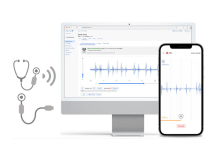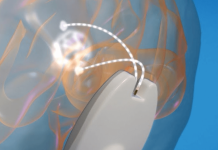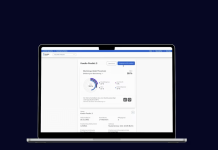Abbott, BD, Hologic, PerkinElmer, Thermo Fisher and Quidel are reassuring the public that their COVID-19 tests detect the Omicron variant.
Discovered last week in South Africa, the new variant has enough mutations that it has raised concerns worldwide — even though it is still unknown for sure whether the mutations cause greater transmissibility or vaccine evasion. The United States is among the countries restricting travel from southern Africa for the time being, and the CDC is advising all adults to get a booster shot.
Pfizer and Moderna say they’ll create new versions of their vaccines if needed.
Abbott said in a statement on November 27: “We have already conducted an assessment of the Omicron variant, and we’re confident our rapid and PCR tests can detect the virus. While the Omicron variant contains mutations to the spike protein, Abbott’s rapid and molecular tests – antigen and PCR – do not rely on the spike gene to detect the virus.”
Dave Hickey, president of Life Sciences for BD, said today that the company, after an analysis of Omicron, is confident that its rapid antigen and PCR tests for COVID-19 will detect the novel variant. The BD analysis used all available genome sequences deposited in the GISAID (Global Initiative On Sharing All Influenza Data) EpiCoV database as of yesterday. “When live viral samples are made available, BD will perform additional rigorous testing in the laboratory.”
Hologic announced yesterday that its three SARS-CoV-2 tests detect the recently emerged Omicron variant of the coronavirus that causes COVID-19. The company conducted an analysis of genetic sequences from more than 175 Omicron-infected samples obtained through GISAID. It found that none of the new mutations occur within regions of the genome targeted by Hologic’s Aptima SARS-CoV-2 assay, Aptima SARS-CoV-2/Flu assay or Panther Fusion SARS-CoV-2 assay.
“We fully expect that SARS-CoV-2 will continue to evolve, as that is the natural path for viruses,” said Kevin Thornal, president of the Diagnostic Solutions Division at Hologic. “We designed our assays with this in mind, and as a result, we are confident that the Omicron variant will not impact the performance of our assays.”
Also, yesterday, PerkinElmer said its assays do not target the SARS-CoV-2’s S gene, where the Omicron’s more than 30 mutations are located. In silico assessment against variant databases such as GISAID confirm that Omicron does not impact PerkinElmer’s PCR-based diagnostic kits.
Thermo Fisher Scientific has said its TaqPath diagnostic kit can detect the emerging Omicron variant of COVID-19. Thermo Fisher EVP & COO Mark Stevenson said: “Like all viruses, we have always known that SARS-CoV-2 would continue to mutate, and that effective testing strategies are a key to curbing the pandemic.”
Said Quidel CEO Douglas Bryant: “Regarding our PCR assays, in silico analysis of the GISAID database showed that 100% of all 206 published sequences of the Omicron variant are covered by our primer and probe combinations. Regarding our antigen assays, GISAID analysis shows a high likelihood that the Omicron variant is detectable by our immunoassays.”




